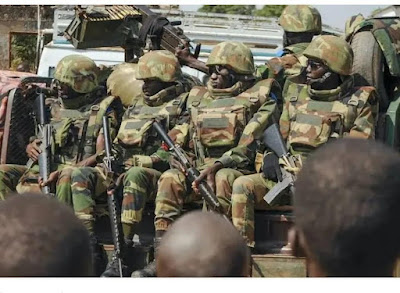Military coup: Five key things to know about Gabon
On Wednesday, army officers declared that they had seized control of Gabon, a nation in Central Africa.
They claimed to be nullifying the election results from the previous day, in which President Ali Bongo was pronounced the victor.
“We have decided to defend peace by putting an end to the regime in power,” the soldiers who introduced themselves as members of The Committee of Transition and Restoration of Institutions said.
The electoral commission said Bongo’s main challenger, Albert Ondo Ossa, had come in second place with 30.77%. Bongo’s team rejected Ondo Ossa’s allegations of electoral irregularities
Here are five key facts about Gabon where military officers had taken power following elections.
1. The Bongos
The small central African state has been ruled by the same family for more than 55 out of its 63 years since independence from France in 1960.
Bongo, 64, who was seeking a third term in Saturday’s election, took over when his father Omar died in 2009 after nearly 42 years in power
Bongo senior, who took office in 1967, had the reputation of a kleptocrat — one of the richest men in the world, with a fortune derived from Gabon’s oil wealth.
His son grew up the carefree scion of a wealthy ruling family and was once known by his initials of ABO, Ali B — or, less flattering, “Monsieur Fils” (Mr Son).
In October 2018, Bongo suffered a stroke that sidelined him for 10 months. The episode stoked claims he was unfit to rule and fuelled a minor attempted coup.
2 Oil powerhouse
Gabon is one of the richest countries in Africa in terms of per-capita GDP, thanks largely to oil revenues and the small population of 2.3 million.
In the 1970s, the country discovered abundant oil reserves offshore, allowing it to build a strong middle class and earn the moniker “central Africa’s little emirate”.
Oil accounts for 60 percent of the country’s revenues.
But a third of the population still lives below the poverty line of $5.50 per day, according to the World Bank.
3.Africa’s ‘Eden’
Forests cover 88 percent of the surface of Gabon, providing a haven for gorillas, buffalo, panthers, elephants, chimpanzees and




Comments
Post a Comment